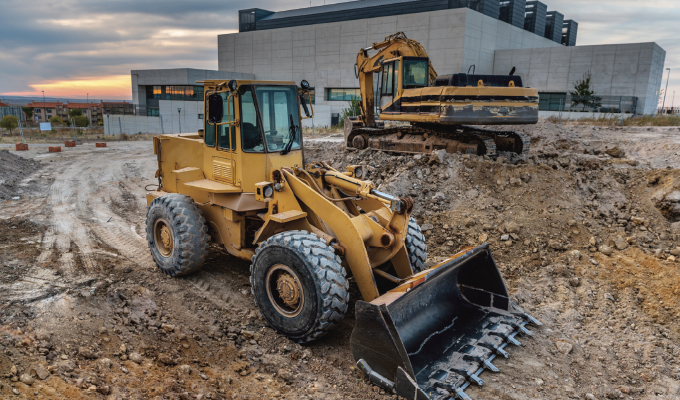Many small business owners have sought capital to keep their doors open, especially through these challenging times. But even as the COVID-19 pandemic slowly eased, some construction company owners are still having a hard time getting loan approvals. Those seeking financial assistance to purchase operational equipment are no exception.
WHAT ARE EQUIPMENT LOANS?
If you don’t have the cash on hand to buy all of this equipment outright, you may want to consider an equipment loan. Equipment loans are a type of financing that allow businesses to borrow money to purchase or lease equipment without paying for it outright.
They can be an excellent option for contractors that need new equipment but don’t want to dip into their savings or disrupt their cash flow to replace worn-out machinery.
Equipment loans typically have lower interest rates than other business loans, making them an attractive financing option for growing construction businesses.
Where can you use an equipment loan?
Equipment loans are typically used by small businesses that may not have the upfront cash to pay for the equipment outright. By taking out an equipment loan, company owners can spread out the cost of the equipment over time and make smaller monthly payments.
Equipment loans may be used for various purposes, from replacing business machinery, purchasing new office furniture, or leasing heavy-duty construction equipment. It may also be used to purchase computers or any hardware that’s essential to running your business.
What lowers your chances of getting an equipment loan approval?
1. CREDIT RATING
Your credit score is crucial when applying for any type of financing. It can determine your interest rates on loans (whether you are approved for a loan or not) and the terms. So, it’s no surprise that your credit score can also affect your chances of getting an equipment loan.
If you have a low credit score, getting approved for an equipment loan may be difficult. This is because lenders view applicants with lower credit scores as being higher risk. They may be more likely to default on the loan or miss payments, leading to the lender losing money.
As a result, lenders are often hesitant to approve equipment loans for people with poor credit scores. On the other hand, having a high credit rating increases your chances of getting approved with the most competitive interest rates and terms.
2. LACK OF COLLATERAL
Collateral is essential in getting an equipment loan because it serves as a form of security for the lender.
If the borrower defaults on the loan, the collateral can be used to repay the debt. This collateral can take many forms, including real estate, invoices, or mortgages.
For lenders, collateral provides peace of mind that they will not lose their entire investment if the borrower fails to repay the loan. For borrowers, collateral gives them a lower interest rate and may be required by some lenders.
Most lenders wouldn’t require borrowers to put up collateral if they already have high credit scores. Unfortunately, those with low credit ratings need to collateralize their property. This will serve as a safety net for lenders, knowing that they have some asset to fall back on if the borrower defaults on the loan.
3. LACK OF A WELL-THOUGHT-OUT BUSINESS PLAN
A well-crafted business plan is essential for any construction company. The construction industry is competitive, and a business plan gives construction companies a roadmap to success.
Lenders will also check your business plan to see how you plan to grow your business at a certain period. They want to ensure that your business will generate enough money to repay your debts. It is also a way for lenders and creditors to assess your risk.
Before applying for an equipment loan, make sure you have a business plan in place. It will make it easier to get funding from lenders and help you avoid any potential problems down the road.
4. POOR CASH FLOW
Having poor cash flow can negatively impact your loan in a few ways. First, it can hurt your business’s credit score. If your business has a history of late payments or delinquent accounts, it will lower your credit score and make it harder to get approved for a loan.
Second, poor cash flow can make it difficult to repay a loan on time. If you’re constantly struggling to make ends meet, the lender may not believe that you’ll be able to repay the loan and will deny your application.
Likewise, poor cash flow can indicate that your business is in financial trouble. Lenders are typically unwilling to give loans to companies that are struggling financially. If your business has cash flow problems, you’ll need to address those issues before applying for a loan.
THE BOTTOM LINE
Applying for an equipment loan is a big decision, but with careful planning and research, it can be a great way to finance your business’s growth.
Before applying, make sure you have all the documents you need to secure equipment financing. Also, make sure you know where your credit stands so you can address it beforehand.
CLOSING THOUGHT
If you’re ready to apply for an equipment loan for your growing construction business, be sure to speak to finance experts who specialize in your field.
About the Author:
Matthew Gillman is a business financing expert with more than a decade of experience in commercial lending. He is the founder and CEO of SMB Compass, a specialty finance company providing education and financing options for business owners. For more, visit www.smbcompass.com.
Modern Contractor Solutions, September 2022
Did you enjoy this article?
Subscribe to the FREE Digital Edition of Modern Contractor Solutions magazine.



